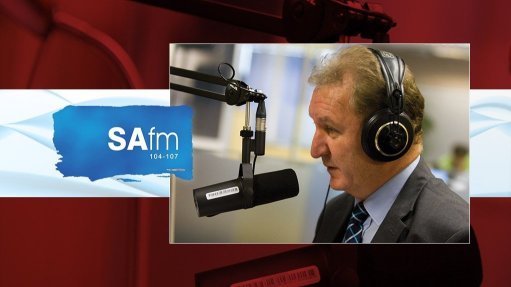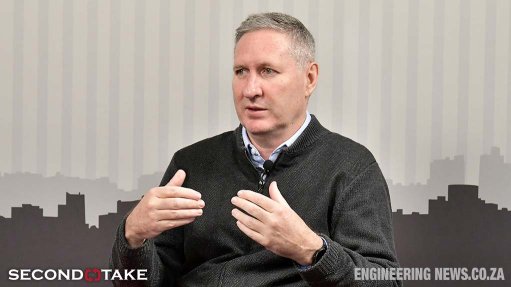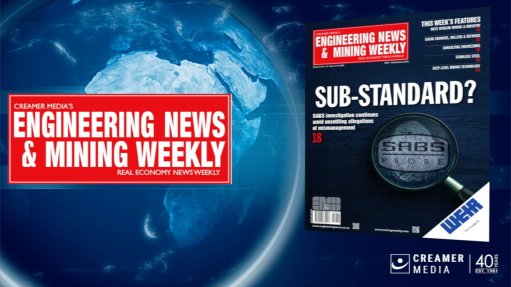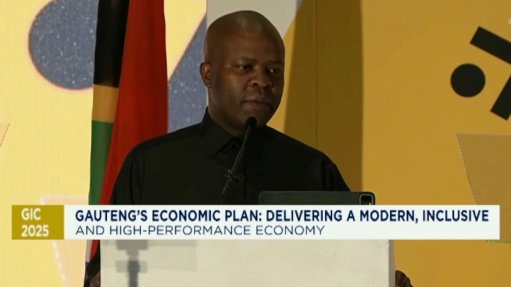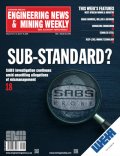New construction contracts aim to reduce uncertainty
The new contract documents under development by the International Federation of Consulting Engineers (FIDIC) that aim to reduce uncertainty for construction contractors and employers should not become overly complex and difficult to implement, says specialist commercial consulting firm MDA Consulting director Ian Massey.
The new Rainbow Suite of FIDIC standard construction contracts, which are commonly used in South Africa, will be published later this year – 18 years after the original suite was published.
The new suite will also be accompanied by a revised version of the Contract for Dredging and Reclamation and the White Book, which pertains to the Model Services Agreement. A completely new contract document – the Emerald Book – has also been drafted specifically for tunnelling and underground works and is expected to be published next year.
Massey explains that standard construction contracts provide a crucial structure for the management of the anticipated risks in a project. “Other tools, such as the budget, the programme and the specifications are also important, but the construction contract acts as the mortar that binds these other tools together.”
He notes that changes were made to the original suite “to clarify the requirements of the contract and, thus, make it easier for us to use”. However, delegates at the FIDIC International Contract Users Conference, held in London in December, expressed concerns that the contract would be more complicated and too difficult to understand.
“The intention of the drafting committee has been to make the provisions of the contract easier to understand. Perennial problem areas have, however, required increases in explanatory material. The problem is that long winded and complex contract terms and conditions are not easy to understand and the increased length of each clause may prove to be counterproductive and defeat the objective of greater clarity.”
Massey points out that although the contracts forming the new Rainbow Suite will be only one clause longer, the contracts are over 50% longer than the 1999 versions. The procedures are also more complex and subject to stricter time constraints.
“In our experience, complicated contract clauses are unlikely to be understood. There is already a reluctance to use contract documents throughout the industry and these longer and more complex documents could potentially increase this resistance.”
Massey highlights that all modern contract forms require greater skill and a level of sophistication in the administration and management of the processes required for the successful implementation of projects than was called for in the past – and he says the new Rainbow Suite is no exception. “All in all, the new documents are going to be a challenge and the South African industry will have to be upskilled to address these challenges.”
While FIDIC intended to publish the suite by the middle of the year, this deadline has since slipped and a specific publication date has not been publicised. Massey stresses that there are a great many checks and balances that the documents must go through before they are acceptable to the drafting committee and the various reviewers.
“Some of the features of the proposed new documents are fairly radical and we expect some serious debate before the documents will finally be settled.”
Positive Changes
Despite problems with the drafting of the Rainbow Suite, Massey highlights that the Emerald Book, for instance, has some innovative features designed to allocate ground and groundwater risk to the employer, while production risks in the ground conditions identified by the employer are laid at the door of the contractor. Time can also be reduced in this contract when ground conditions are more favourable than predicted.
He explains that although tunnelling work is high-risk work from both a safety perspective and in terms of being able to foresee problems – such as ground and groundwater conditions – up until now, a “normal” construction work contract has been used, which does not adequately address these challenges. Particular conditions and technical specifications have, therefore, been drafted in the past to try to address the increased and specific forms of risk peculiar to this type of work.
“These often place unreasonable risk on the contractor, whether intentionally or by design, and the contractor, in turn, has to make allowances in his price for risks that may or may not occur. This makes these types of contracts expensive for the employer and sometimes for the contractors too.”
The intention of the Emerald Book is to manage risk more effectively by allocating the risk to the party best able to manage it. “This new book should increase certainty of time and price of construction and is intended to make underground contracts more economical, since only risks that occur will need to be paid for.”
The fifth edition of the FIDIC White Book – which is used for the appointment of a consultant for professional services to be rendered – was also issued in February, to address a number of shortcomings identified in the fourth edition.
“In our view, the new edition has corrected shortcomings in the previous version. Despite it being a longer document, we think that the FIDIC White Book will be used with more confidence going forward as the provisions of earlier editions have been strengthened,” concludes MDA Consulting director Odette Potgieter.
Comments
Announcements
What's On
Subscribe to improve your user experience...
Option 1 (equivalent of R125 a month):
Receive a weekly copy of Creamer Media's Engineering News & Mining Weekly magazine
(print copy for those in South Africa and e-magazine for those outside of South Africa)
Receive daily email newsletters
Access to full search results
Access archive of magazine back copies
Access to Projects in Progress
Access to ONE Research Report of your choice in PDF format
Option 2 (equivalent of R375 a month):
All benefits from Option 1
PLUS
Access to Creamer Media's Research Channel Africa for ALL Research Reports, in PDF format, on various industrial and mining sectors
including Electricity; Water; Energy Transition; Hydrogen; Roads, Rail and Ports; Coal; Gold; Platinum; Battery Metals; etc.
Already a subscriber?
Forgotten your password?
Receive weekly copy of Creamer Media's Engineering News & Mining Weekly magazine (print copy for those in South Africa and e-magazine for those outside of South Africa)
➕
Recieve daily email newsletters
➕
Access to full search results
➕
Access archive of magazine back copies
➕
Access to Projects in Progress
➕
Access to ONE Research Report of your choice in PDF format
RESEARCH CHANNEL AFRICA
R4500 (equivalent of R375 a month)
SUBSCRIBEAll benefits from Option 1
➕
Access to Creamer Media's Research Channel Africa for ALL Research Reports on various industrial and mining sectors, in PDF format, including on:
Electricity
➕
Water
➕
Energy Transition
➕
Hydrogen
➕
Roads, Rail and Ports
➕
Coal
➕
Gold
➕
Platinum
➕
Battery Metals
➕
etc.
Receive all benefits from Option 1 or Option 2 delivered to numerous people at your company
➕
Multiple User names and Passwords for simultaneous log-ins
➕
Intranet integration access to all in your organisation









